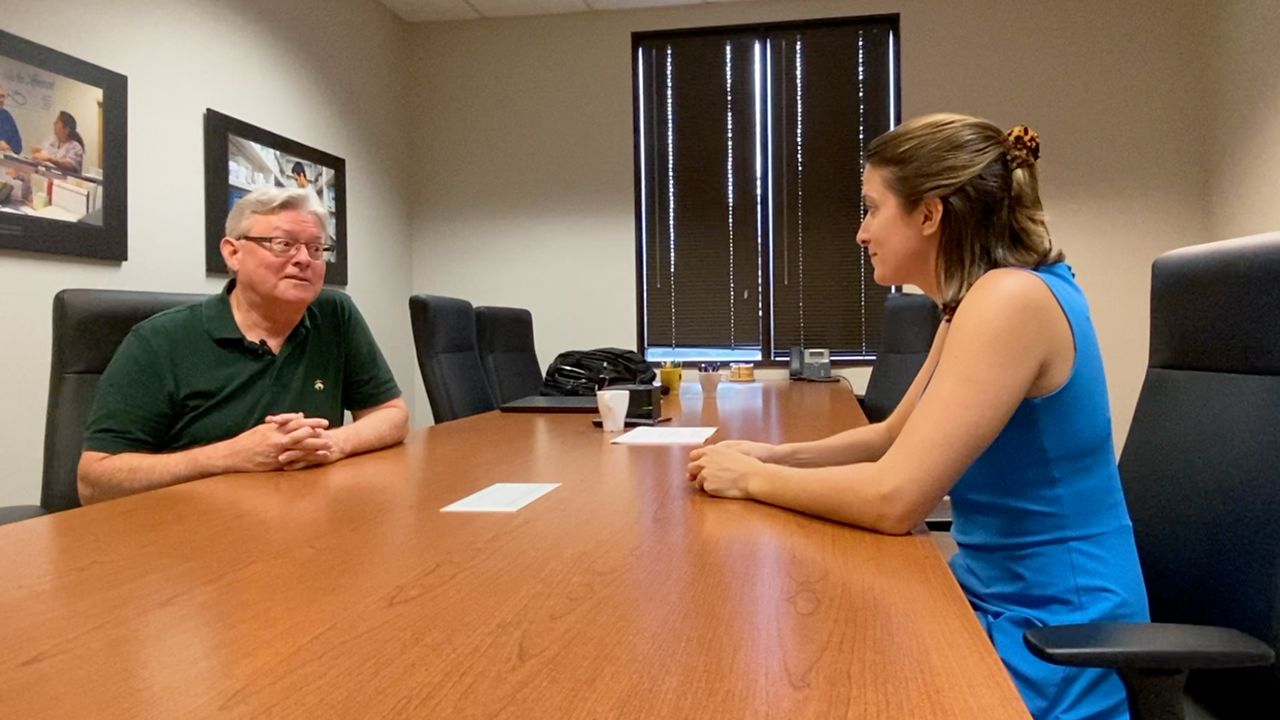What You Need To Know
- A report from the State Health Plan says most of North Carolina's hospital systems made record profits during the pandemic
- The report from Treasurer Dale Folwell's office says big hospital systems collected COVID relief money while rural hospitals suffered
- But the health systems all largely say they needed the money to stay afloat and keep staff tending to patients
- Some of the COVID-19 relief funds also went to charity care that helped vaccinate and treat the underserved population
Elizabeth Brill is the executive director of Samaritan Health Center in Durham. It's one of the free clinics under NCAFCC and focuses on comprehensive care.
“So medical, vision and when possible, we provide dental care," said Brill. "We assist with medications, we assist with external referrals, charity care applications for local hospitals. So we want patients to come in and get as much as possible as they can here at the clinic," she said.
Brill has been working at the faith-based center for more than a decade. She says a lot of the center's funding comes from individuals and churches, and they often don't receive insurance reimbursements. So staff had no idea what would happen to their funding during the pandemic.
"We had to cancel fundraising events, we had volunteers who weren't able to come in," she said.
That's why Brill says COVID-19 relief funds were essential for the clinic to stay open.
"One of the things that this funding allowed us to do was to take a deep breath and address the urgent needs and not worry about getting our staff paid," Brill said. "It paid our staff, it provided PPE, it allowed us to do a renovation, so that we could reopen a dental clinic in a safe COVID manner.”
Brill says they had to report every month how and where they used the funds.
"Were we giving COVID tests? Were we giving COVID vaccines? How many of our patients were getting COVID? What kind of treatment are we providing? How are we spending this money? There was a rigorous management of this funding," said Brill.
While some large hospital systems are being accused of profiting from the pandemic assistance money, Brill says clinics and others did their best to respond to the unprecedented crisis.
"Policy isn't always perfect. But when you can look back at why it started and what the goal is... In this case, the goal of this funding was to help our communities respond to a worldwide pandemic," Brill said. "So I am really proud of the work that we have done and the partnership with clinics across the state to make it happen.”
The report from Folwell's office says the hospital systems had a more than $5 billion combined net income in 2021. And Folwell says hospital systems should return the federally funded dollars.

NCAFCC, CEO Randy Jordan says he thinks the way hospitals responded during the pandemic was heroic.
“We have many, many hospital and health care systems that are loyal and faithful partners to our work," Jordan said. "We do greatly appreciate what they do. And a personal response... my early training was as a pharmacist. So I have some experience in the medical community and in a hospital setting. And I must say, what I observed from a distance was heroic," Jordan said. "This has been a big challenge for all of us and it was all hands on deck, and from my vantage point everybody was working as hard as they could to a good end.”
Spectrum News 1 reached out to several North Carolina health systems to get their responses to the State Health Plan report. You can see their statements here.



